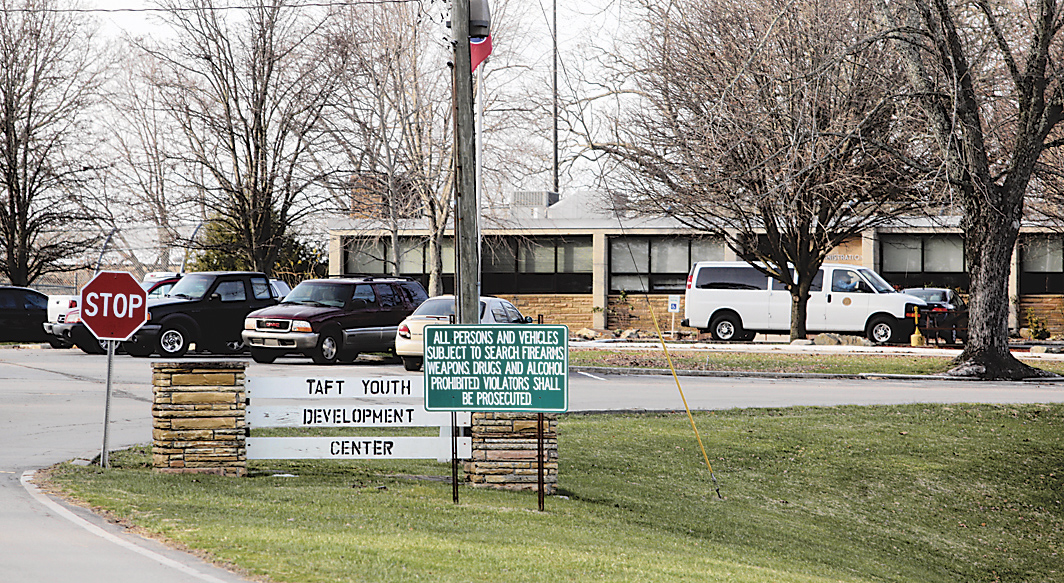NASHVILLE - Gov. Bill Haslam is defending his administration's 2012 closure of Taft Youth Development Center in rural Bledsoe County despite recent riots and two mass escapes by hardened teen-age felons housed in a Nashville facility.
"I think the move to close Taft was right, and I think if you talk to anybody who's actually involved there, I don't think closing Taft has anything to do with some of the challenges we've had at Woodland Hills," the governor told reporters last week.
Haslam's Department of Children's Services has been grappling with how to address the escapes and violence at Woodland Hills Youth Development Center, which sits in an industrial area of Nashville but isn't far from some residential areas where neighbors are concerned.
On Sept. 1, 32 teens broke out of Woodland Hills, injuring two guards. It took days to catch them and two remain at large. The mass escape drew international attention.
Days later, riots erupted. Teens got outside the building but this time couldn't get past the perimeter fence.
And on Sept. 26, authorities said, 13 teens fled the complex after overpowering a guard and squeezing through the main gate. All were apprehended within a couple of days.
State Rep. Cameron Sexton, R-Crossville, who led legislative opposition to Taft's closure, believes the state wouldn't be seeing these kinds of problems if Taft were still open.
"I would say the governor's entitled to his opinion, and I appreciate his opinion," Sexton said. "I just respectfully disagree that the amount of violence of what, the past two years, would have been the same as the same level as Woodland Hills."
For nearly 100 years, Taft, located near Pikeville on the Cumberland Plateau, was the primary facility for the state's most troubled youths, including gang members. But the Haslam administration said it also was the most expensive to operate, and argued that closing it and sending the youths elsewhere would save about $8.5 million a year.
Taft proponents said the facility was uniquely well suited to deal with the "worst of the worst" teens. Sexton recently wrote a letter urging Haslam to consider reopening Taft.
The youth center provided jobs for generations of nearby residents. And even when one or two teens managed to escape, said Sexton, "there's nowhere for them to go. They go in the woods, and they're in a rural, remote area."
And despite having the most problematic teens, many of them older and members of criminal gangs, Taft had the lowest recidivism rate as well as the highest number of children receiving high school graduations or GEDs of all of the Tennessee Department of Children's Services youth development centers.
Taft guards and their family members at the time predicted there would be trouble once the facility closed. Other facilities couldn't handle them, they warned. And trouble there has been.
The Tennessean newspaper in Nashville recently reported that between January and early September of this year, there were 145 reported incidents of violence at Woodlawn, including 39 assaults by teens on one another and 51 assaults by teens on staff.
Officials cite multiple problems and note that guards aren't allowed to carry stun guns or tear gas in emergencies under previous court consent decrees entered into by the state.
In two instances, personnel from the Tennessee Highway Patrol and the Department of Correction, which handles adult felons, had to rush in to restore order.
Department of Children's Services Commissioner Jim Henry told Nashville's WKRN-TV recently that 18-year-olds were involved in at least two of the three escape attempts. Thirty-eight percent of the 306 delinquents in state custody are 17 or 18, and they're responsible for 70 percent of the problems, WKRN reported.
Henry told The Associated Press last week that he plans to seek court approval to be able to lock the teens in their rooms and to give guards access to tear gas in emergencies. But he said he does not support arming the guards.
"We're not going to re-create a correctional-type facility, but we do need security so people can't just attack a guard anytime they want to," Henry told the AP.
Also under consideration is whether older teens should be placed in the adult system. Under current law, teens can remain in juvenile custody until they're 19.
Haslam told reporters last week that it's a "challenge we have" in terms of how 17- and 18-year-olds are treated.
"So we're trying to walk the balance between not throwing away some kid's life because he's made bad decisions when he's a teenager, and making certain that we protect the community from any other bad choices they make in the future.
"That's the balance were trying to get right, and I don't think we're alone as a state in trying to figure out the right balance," the governor added.
Contact staff writer Andy Sher at asher@timesfreepress.com or 615-255-0550.


